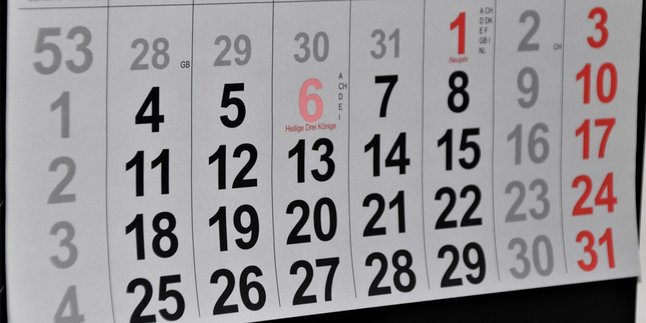Kapanlagi.com - The holy month of Ramadan always comes with a vibe full of blessings for Muslims. However, for some people, this blessed month also reminds them of fasting debts that have not been paid from last year. There are many reasons that prevent someone from fasting, such as illness, travel, or other reasons recognized by Islamic law. Nevertheless, they are still required to make up for the fast on another day.
So, until when must someone fulfill their qadha fasting? Is it permissible to postpone it until the next Ramadan approaches? Or are there consequences lurking if the fasting debts are left unresolved? These questions often arise in society as the holy month approaches.
In this article, we will thoroughly discuss the intention of qadha fasting, the procedures for its implementation, the specified deadlines, and the views of scholars regarding the legality of postponing qadha fasting until after the next Ramadan.
1. What Is Qadha Fasting and Why Must It Be Performed?
Qadha fasting is an obligation that must be fulfilled by those who did not observe fasting during Ramadan for certain reasons that are justified in Islam. This refers to the words of Allah SWT in Surah Al-Baqarah verse 184:
"So whoever among you is sick or on a journey (and does not fast), then (he must make up) as many days (as he did not fast) on other days. And for those who find it difficult, there is a fidyah obligation, which is to feed a poor person." (QS. Al-Baqarah: 184)
From this verse, it is clear that someone who has a debt of fasting is required to make it up on other days after the month of Ramadan. This is not only a form of compliance with religious commands but also to complete the obligations that have been left behind.
2. Intention for Qadha Fasting and How to Say It
Just like obligatory fasting, intention is one of the main pillars in the worship of qadha fasting. The Prophet Muhammad SAW said:
"Indeed, deeds are judged by intentions..." (HR. Bukhari and Muslim)
The intention for qadha fasting must be stated before dawn. Here is the recitation of the intention:
نَوَيْتُ صَوْمَ غَدٍ عَنْ قَضَاءِ فَرْضِ شَهْرِ رَمَضَا064e لِلَّنِ تَعَا064e
Nawaitu shauma ghadin ‘an qadhā’i fardhi syahri Ramadhāna lillâhi ta‘âlâ.
Meaning: "I intend to fast tomorrow to make up the obligatory fast of Ramadan for the sake of Allah Ta'ala."
3. When is the Deadline for Making Up Fasts?
Regarding the deadline for making up fasts, there are two main opinions among scholars:
- The first opinion (Shafi'i and Hanbali): Qadha fasts must be performed before the next month of Ramadan arrives. If someone misses this deadline without a valid reason, they are also required to pay fidyah as a form of penalty.
- The second opinion (Hanafi): There is no specific deadline for making up fasts. A person is still obligated to replace their fasts at any time, even after the next Ramadan has passed.
The more widely held opinion is that qadha fasts must be fulfilled before the next Ramadan. However, if there are obstacles that prevent someone from doing so on time, they are still required to make it up later.
4. Is it Permissible to Delay Making Up Fasts?
Delaying the qadha fast until just before the next Ramadan is permissible, but it is advisable not to postpone it for too long. In a hadith, Aisha RA said:
"I still have a debt of Ramadan fasts. I am only able to make them up in the month of Sha'ban." (HR. Bukhari and Muslim)
This hadith indicates that delaying the qadha until the month of Sha'ban is allowed, but it must still be fulfilled before the next Ramadan begins. Otherwise, some scholars require fidyah as compensation.
5. Is Qadha Fasting Required to be Consecutive?
Qadha fasting is not required to be done consecutively. This is based on the word of Allah in Surah Al-Baqarah verse 185:
"So (it is obligatory for him to fast), as many days as he has missed, on other days."
From this verse, the scholars agree that a person may make up missed fasts separately or not consecutively, as long as the number of days made up corresponds to the number of fasts missed.
6. Common Questions About Qadha Fasting
1. Must the intention for Qadha fasting be spoken aloud?
It is not mandatory; it is sufficient to intend in the heart. However, saying it aloud is recommended for greater focus.
2. What if someone forgets how many days of fasting they owe?
It is advisable to estimate the number of days wisely and to take a larger number as a precautionary measure.
3. Is fidyah mandatory if delaying Qadha fasting?
If the delay is made without a valid reason until the next Ramadan, some scholars require fidyah in addition to making up the fasts.
(kpl/rmt)
Disclaimer: This translation from Bahasa Indonesia to English has been generated by Artificial Intelligence.












